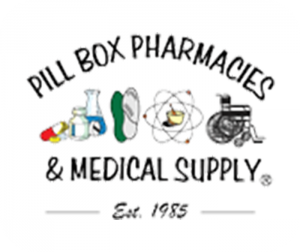If managing stress is a challenge for you, take heed: More and more research is pointing to stress as a contributor to heart attack and other forms of heart disease. From natural disasters1 to the death of a sibling2 to the daily grind of modern-day life, stress can have a big impact on your heart. In fact, some studies show it harms your heart as much as smoking at least five cigarettes a day.3
Adding insult to injury? If you do have a heart attack, the prognosis may be poorer with chronic stress.4 And heart patients with high anxiety can double their risk of dying. Throw depression into the mix—and it’s a triple whammy.5
Why does stress have such a big impact? Stress produces lots of physiological changes affecting your heart. For example, you pump out more adrenaline, which can make your blood pressure rise and your heart race. If these changes keep up over time, they can damage your heart’s arteries.6
Of course there’s also some good news. Although you can’t control all the stressors in your life, you can take steps to better manage your responses to stress. Cultivating a positive, optimistic frame of mind has even been linked to better levels of cholesterol and other markers of heart health.7
Okay, so where do you start? Find methods for managing stress that work well for you. Here’s just a sample. You might have other ideas to add to this list.
- Practice positive self-talk at least once a day. This can work wonders at turning around a negative frame of mind. An example of negative self-talk is this: “I hate when this happens.” An example of positive self-talk is this: “I can handle this. I’ve done it before.”
- Do something pleasurable JUST FOR YOU at least 15 minutes a day. Maybe it’s taking a bubble bath, strolling in the park, or listening to your favorite music. You might be amazed at how much this can turn around a day that feels like it’s gone all wrong.
- Use emergency stress stoppers. These are great for those situations where you feel like you’re going to burst! Try methods like these: Count to 10 before you speak. Take a few deep breaths. Go for a walk. Give someone a hug. Smile at a stranger. Give yourself extra time to get ready in the morning so you won’t be running late.
- Practice a daily relaxation method such as deep breathing. And when I say relaxation, I don’t mean just sitting and watching TV. You need to actively calm the tension in your mind and body. Other great methods of relaxation are yoga, tai chi, and meditation. Try out a variety of methods, but give yourself time to practice and learn.8
- Cultivate healthy habits. Get enough sleep, don’t forget to laugh, exercise, slow down, accept what you can’t change. Taking steps like these will make a big difference in how well you manage stress.9
Good luck with your changes. When you’re in the store, stop by and see how your blood pressure is responding!
Nothing herein constitutes medical advice, diagnosis or treatment, or is a substitute for professional advice. You should always seek the advice of your physician or other medical professional if you have questions or concerns about a medical condition.
Sources
1. HealthDay: “Katrina, Other Crises Boost Heart Attacks: Studies.” Available at: http://www.nlm.nih.gov/medlineplus/news/fullstory_134696.html Accessed March 23, 2013.
2. HealthDay: “Sibling’s Death…” Available at: http://www.nlm.nih.gov/medlineplus/news/fullstory_134434.html Accessed March 23, 2013.
3. Nursing Times: “Stress raises heart attack risk.” Available at: http://www.nursingtimes.net/nursing-practice/clinical-zones/cardiology/stress-raises-heart-attack-risk/5053106.article# Accessed March 23, 2013.
4. Reuters: “Chronic stress tied to worse heart attack prognosis.” Available at: http://www.reuters.com/article/2012/10/05/us-chronic-stress-idUSBRE89415220121005 Accessed March 23, 2013.
5. HealthDay: “Anxiety, Depression May Triple Risk of Death for Heart Patients; Study.” Available at: http://www.nlm.nih.gov/medlineplus/news/fullstory_135077.html Accessed March 23, 2013.
6. University of Kentucky: “Reduce Stress and Heart Attack Risk.” Available at: http://uknow.uky.edu/content/reduce-stress-and-heart-attack-risk Accessed March 23, 2013.
7. Reuters: “Mid-life optimism linked to healthier cholesterol.” Available at: http://www.nlm.nih.gov/medlineplus/news/fullstory_134633.html Accessed March 23, 2013.
8. American Heart Association: “Four Ways to Deal with Stress.” Available at: http://www.heart.org/HEARTORG/GettingHealthy/StressManagement/FourWaystoDealWithStress/Four-Ways-to-Deal-with-Stress_UCM_307996_Article.jsp Accessed March 23, 2013.
9. American Heart Association: “Fight Stress with Health Habits.” Available at: http://www.heart.org/HEARTORG/GettingHealthy/StressManagement/FightStressWithHealthyHabits/Fight-Stress-with-Healthy-Habits_UCM_307992_Article.jsp Accessed March 23, 2013.



